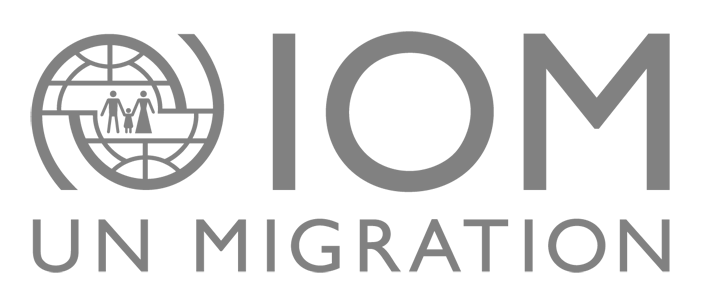Fight diarrhea outbreaks using WASHmobile
Reduce facility visits and stunting using Johns Hopkins University’s proven WASHmobile mHealth program.
- Based on peer-reviewed research
- Distribute WASH products efficiently—with e-vouchers
- Reach high-risk households with location-based push notifications
- Reduce costs & avoid unneeded in-person meetings
- Deployed successfully in Bangladesh and DRC
Roll out your own WASHmobile program fast
15-min call • no pitch • we’ll review your use case
Responding to diarrhea outbreaks fast
Traditional “blanket approaches” to fighting diarrhea wait for large outbreaks to happen before deploying broad, in-person interventions that are costly and time-consuming.
Instead, WASHmobile—designed by Johns Hopkins University public health researchers together with researchers from the Democratic Republic of the Congo and Bangladesh and powered by engageSPARK—provides a low-cost, scalable method to alert communities to public health threats without the need for resource-intensive visits.
What is WASHmobile?
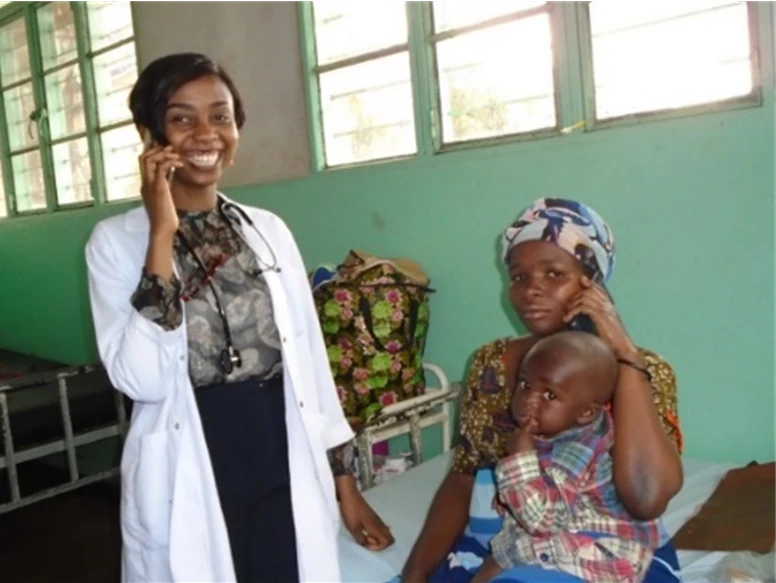
WASHmobile is an mHealth program that, in cooperation with engageSPARK, delivers WASH mobile messages directly to households at highest risk for diarrhea (e.g. diarrhea patient households) and in areas at high risk for diarrhea outbreaks.
The program was developed by leading researchers from the Johns Hopkins Bloomberg School of Public Health together with researchers from the Democratic Republic of the Congo and Bangladesh and leverages digital mobile-based behavior-change tools to promote handwashing with soap, safe drinking water treatment, and safe drinking water storage.
It achieved 60% fewer facility visits for diarrhea and up to 30% reduction in stunting in clinical trials with more than 5,500 participants.
- Proven implementation, based on more than a decade of research
- Developed and implemented in the Democratic Republic of the Congo (DRC) and Bangladesh
- Includes full operational guide and open-source material to get started
Learn more about WASHmobile at WASHmobile.org
How WASHmobile works
The WASHmobile program starts long before an outbreak, by preparing local health centers and pharmacies. That’s because the local health centers are key to spotting outbreaks by notifying the national health department of new diarrhea cases.
Once the program’s coordinator at the health department recognizes an outbreak in an area, these things happen:
- All healthcare facilities in the area are notified of the outbreak.
- A healthcare promoter is dispatched to visit the facilities, bring WASH kits, and visit the patients’ households to teach them how to protect themselves.
- The patients and their households are enrolled in a months-long messaging campaign reinforcing the lessons.
- Everyone in the surrounding neighborhood is notified of the outbreak, and given access to chlorine tablets and soap using e-vouchers—digital coupon codes.
Learn more about how WASHmobile works by reading the Operational Guide here.
mHealth powered by engageSPARK
engageSPARK powers both the e-vouchers and the long-running messaging campaigns.
For the e-vouchers, engageSPARK provides the infrastructure for staff at the pharmacies to validate the vouchers using SMS, IVR calls, or WhatsApp messages.
The messaging campaigns are long-running series of educational SMS messages and phone calls, with quizzes to assess and reinforce learning. These messages need to be delivered at certain times of the day for maximum effect. WASHmobile uses the engageSPARK Communication Platform to build, manage, and run these campaigns.

Innovation by WASHmobile
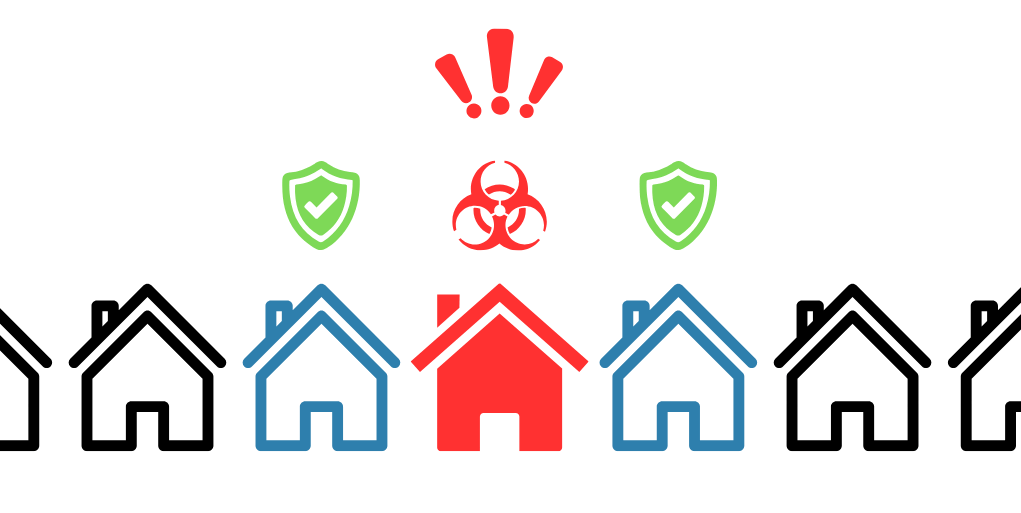
Tackle the outbreak with speed & precision
Outbreaks usually start by spreading in a neighborhood. Instead of a slow-moving and delayed blanket approach, WASHmobile moves fast to reach the community around the first patients.
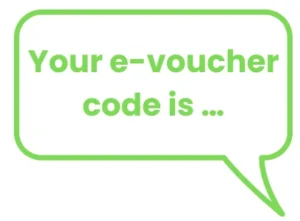
Efficient distribution with e-vouchers
By cooperating with local pharmacies, WASH products are made available for free. This works using e-vouchers—digital coupon codes, which are sent to high-risk households via SMS. Local pharmacies then hand out soap, chlorine tablets, etc., when being presented with an e-voucher.
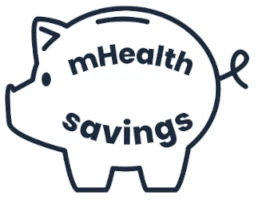
Lower costs with mHealth
Using mHealth messaging instead of in-person interventions isn’t just faster, it also lowers costs. Even more, research in Bangladesh has shown that home visits provided no additional benefits over the mHealth only model.
Provide essential WASH products with e-vouchers
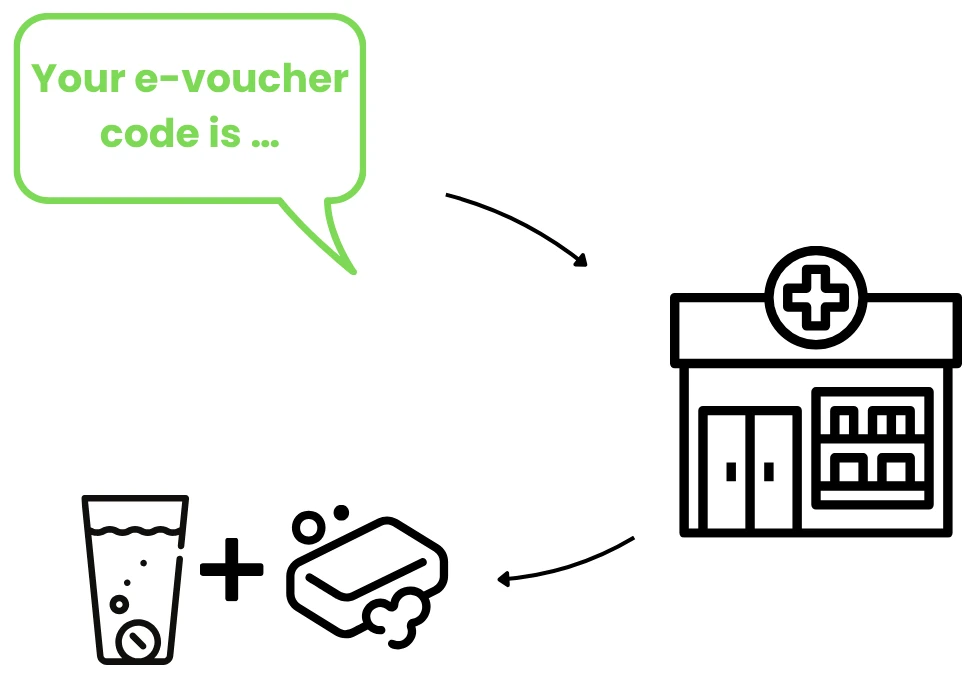
E-vouchers are digital coupons sent by SMS that allow participants to redeem essential WASH products—such as chlorine tablets or soap—free of charge.
Each voucher includes a unique code that can be validated by a participating shop or pharmacy using an SMS shortcode (no internet required). Once the e-voucher is used, the code is automatically marked as redeemed.
This system prevents counterfeiting and makes it easy and secure for households and vendors to use WASH e-vouchers. In WASHmobile, both patient households and households nearby receive these e-vouchers.
Participating pharmacies are then reimbursed for the used e-vouchers.
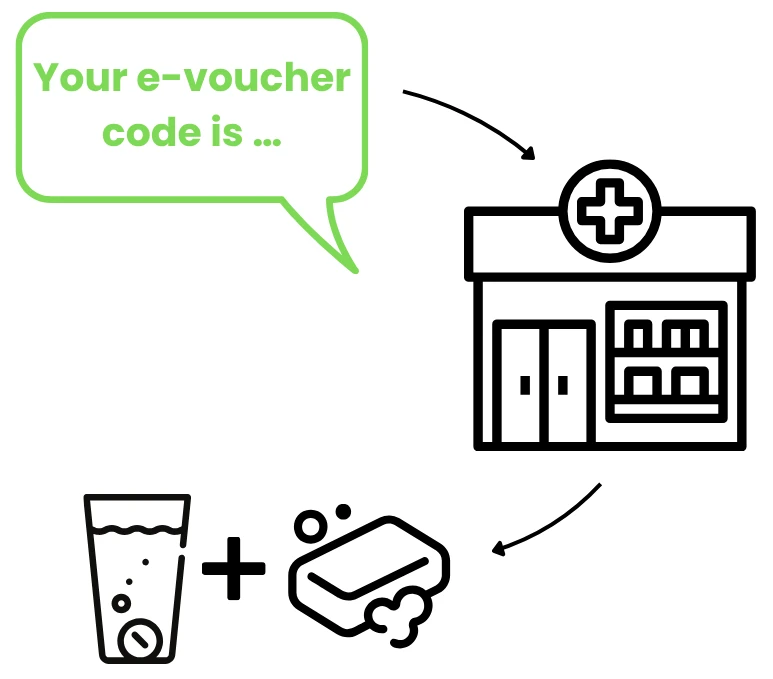
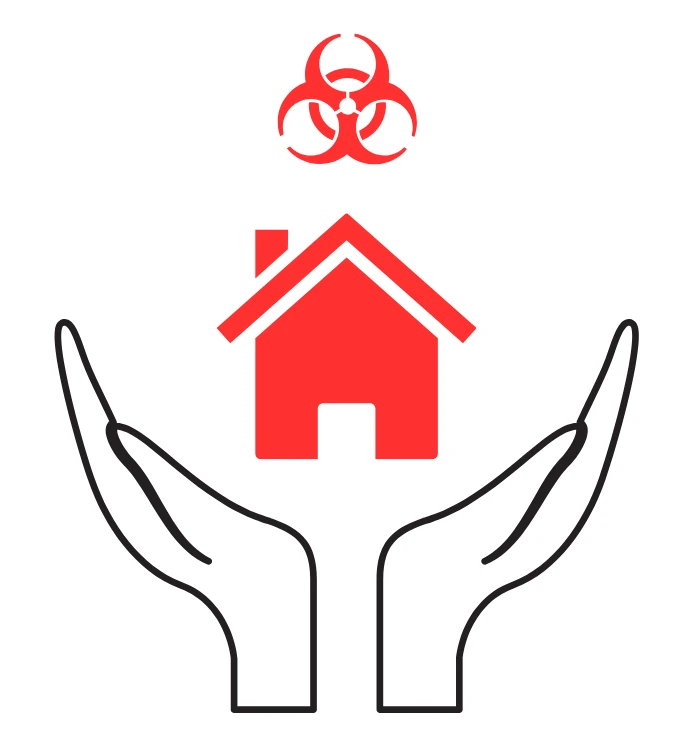
Mobile messaging for the patient household

The first line of defense against an outbreak begins with the patients and their households. As soon as a diarrhea outbreak is detected, these households are immediately enrolled in the WASHmobile program and educational messaging campaign. The first message includes the e-voucher so that people can claim WASH products like soap and chlorine free of charge.
Following enrollment, families receive a series of voice and SMS messages in the local language with practical guidance on safe water treatment, handwashing with soap, and household hygiene. During the critical first week after an outbreak alert, messages are sent daily to reinforce key prevention behaviors.
Messages should be sent at a time when people are most likely to read them—in past projects that was 8:00 p.m. at night.
Messaging the neighborhood
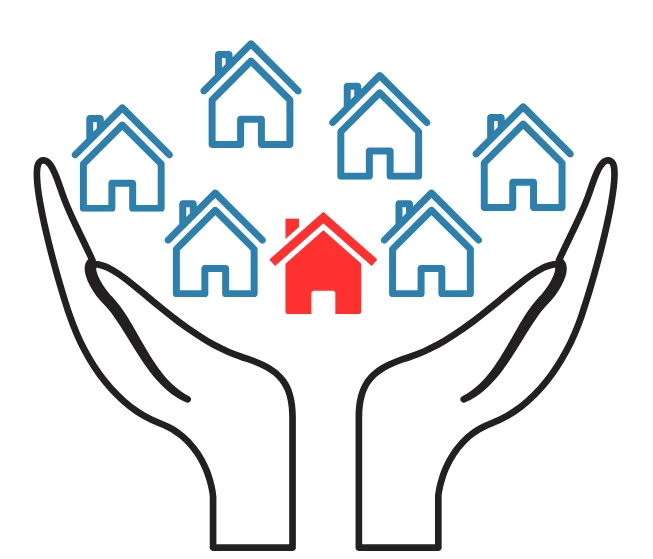
Stopping a diarrhea outbreak early means acting fast—not just at the patient’s home, but across the entire neighborhood. People living nearby are often most at risk of infection from cholera and other waterborne diseases. Protecting these neighbors is critical to stopping transmission before it spreads further.
Through WASHmobile’s automated neighborhood messaging system, everyone living near a reported case receives a mobile alert as soon as an outbreak is detected.
This first message informs the community that a cholera outbreak has been identified and includes a free e-voucher to redeem soap and chlorine for safe water treatment.
For the next seven high-risk days, residents receive daily voice and SMS messages in the local language with practical steps on hygiene, handwashing, and chlorinating water.
Messages are sent at times when people are most likely to listen or read—typically around 8:00 p.m., based on previous WASHmobile programs.

Location-based push notifications for the surrounding community
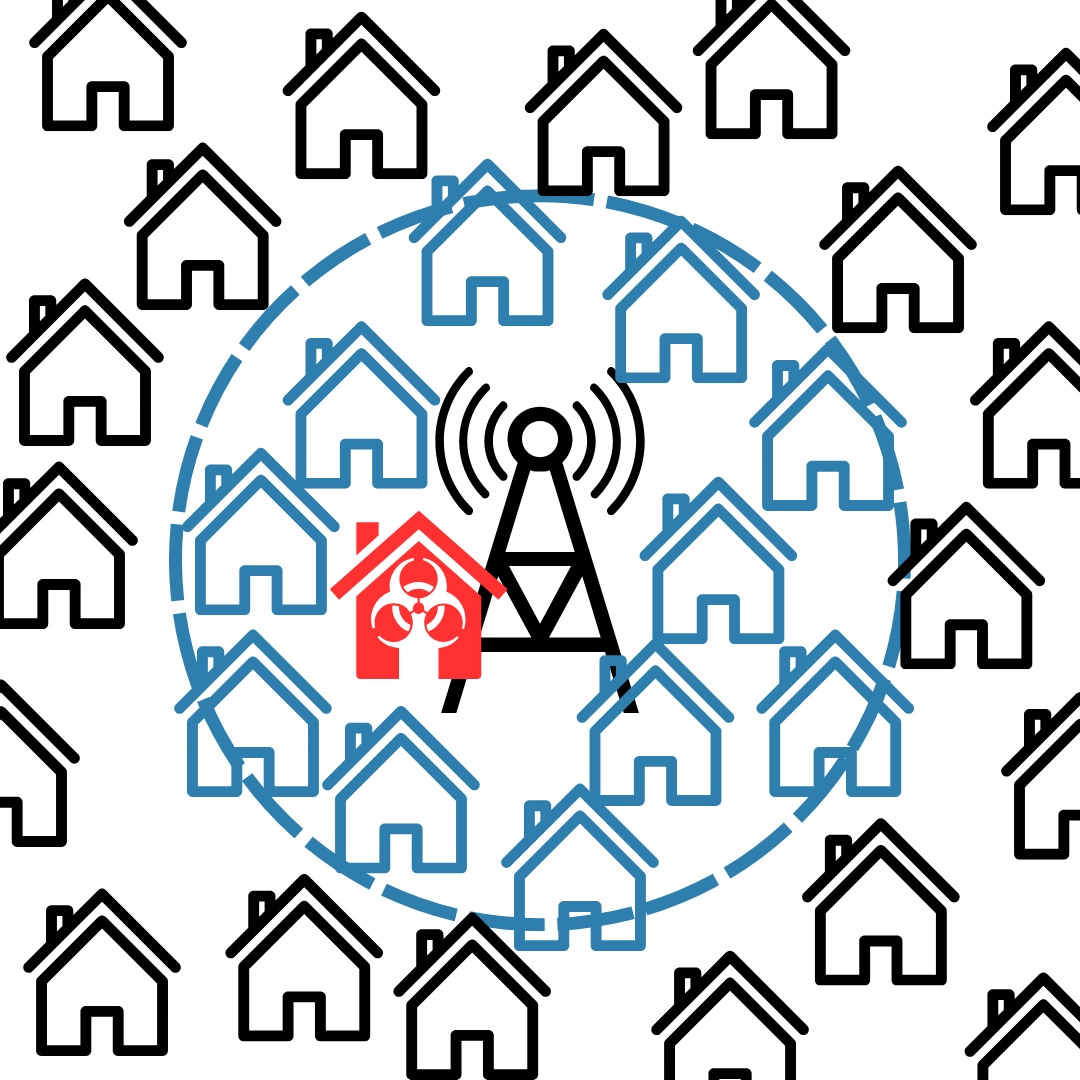

When an outbreak begins, reaching people at highest risk—and reaching them quickly—is essential. While local health facilities respond to patients and their households, WASHmobile extends that protection to the surrounding community.
After a case is reported, a healthcare worker records the patient’s phone number and home location. Using this information, WASHmobile’s system sends location-based push notifications to everyone living nearby.
These alerts are delivered automatically to all phones within the coverage area of the closest cell tower—no enrollment or phone number collection needed.
This approach, known as geofencing, is made possible through partnerships with local telecommunications providers. Establishing this system is a key part of the WASHmobile preparation phase, ensuring communities can be reached instantly when an outbreak occurs.
Fast support, by humans
We pride ourselves on the support we offer. Our customers—including WASHmobile implementers—love that, and tell us as much.
- Talk to our team easily—don’t be stuck with support bots.
- We aim to solve your issues—not just “resolve the ticket.”
- We’re friendly!
Try it—the chat is in the bottom right.
What our customers are saying
“We love using the engageSPARK platform – it’s super user-friendly, the customer service is great, and we’re learning how to get high response rates!”
Kasia Stochniol, Director
60 Decibels, a leading impact measurement company spun out of Acumen, has completed hundreds of impact measurement projects in 80+ countries using engageSPARK.
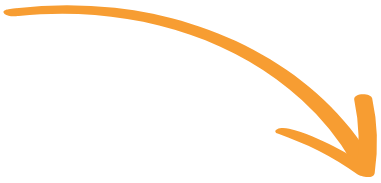
How may we help you?
Let’s talk!
Open the chat and say hi. We’re happy to help.
Or drop us an email at sales@engagespark.com




